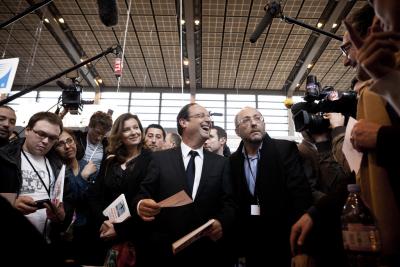A currency war about to go nuclear

ROME - A low-level currency war has been simmering away since the autumn. The growing fear now is that it is about to go nuclear. The start of 2013 has proved to be buoyant. We saw the FTSE 100 rise to over 6300 and although some of this may be speculatively driven, there is no doubt that the more positive noises coming from the US have had an effect on confidence. Were this to happen, what would be the fallout for the UK and sterling? As with most currency wars, this one results from everyone trying to devalue at the same time, while of course denying that they are doing any such thing. With the central banks of the euro zone, America and Japan committed to potentially unlimited support for their respective economies and with the Bank of England having mused last month on the desirability of a weaker pound, it is widely assumed that all concerned are trying to export their way back to strong growth via a lower exchange rate deliberately caused by excessive domestic money creation. Doubtless the Group of 20 finance ministers’ meeting in Moscow later this week will publicly deplore such behaviour. Hollande’s beef, meanwhile, is not that this is happening, but that the euro zone is proving less than adept at devaluation. Ironically, the widespread view that the worst of the euro zone crisis has passed has helped to cause just the appreciation in the euro that Hollande dislikes. With sterling’s safe-haven status thus diminished and doubts growing as to whether Britain can keep its AAA credit rating, the pound has gone in the opposite direction, losing about 3.5 per cent of its value against a basket of world currencies since New Year’s Day. Were devaluation the elixir of trading success, UK business would have the world at its feet. Funnily enough, what remain of British manufacturing exports tends to be high value and less sensitive to price increases. This minimises the benefits of devaluation while leaving in place the big disadvantage, which is costlier imports, leading to higher inflation. Investors are hoping Chinese New Year celebrations this weekend will be the start of a successful and solid 12 months for their money thanks to an improved situation in the economic powerhouse. Those pushing the case for China argue that stocks are cheap, growth has slowed to a more sustainable level and political uncertainty has been put aside for now, following last year’s election of Xi Jinping. If the opinions of fund manager Philip Ehrmann, manager of the Jupiter China Fund and Jupiter China Sustainable Growth Sicav, are anything to go by, it may be the Year of the Snake arriving on Sunday, but investors could find 2013 to be a year for the bull in the Chinese market. "The hard landing so many economists had predicted did not come to pass," he says. "China’s economy grew a respectable 7.8 percent in 2012, ahead of Chinese government forecasts, with the rate of growth in the last three months of the year showing clear signs of acceleration." "While this level of expansion does not match the growth of 9.5 per cent recorded in 2012, it is strong enough, in my view, to dispel any unease about the health of the economy." The International Monetary Fund has also forecast Chinese GDP growth of 8.2 percent for 2013 and 8.5 percent for the following year – a strong indication it too believes the Chinese economy is back on track. For much of last year it seemed fashionable among economists, political commentators and analysts to talk about China as an accident waiting to happen. A sharp slowdown in economic growth, worries about inflation, the threat of a housing bubble and a tricky change of leadership for the Communist Party were all cited as reasons for investor caution. Fast forward to 2013 and these fears now appear overblown. Against this backdrop, Chinese stocks remain very attractively priced. Industries we particularly like are new energy, environmental protection and information technology and China’s government has set itself an ambitious target to make sure these industries account for 15 percent of the country’s GDP by 2020, up from just under 4 percent now. Given the Chinese economy is likely to have doubled in size by then, the potential returns are significant. Jeff Chowdhry, head of emerging equities at F&C Investments, is also keen on China. He says: "We are seeing definite evidence of a stabilisation of the Chinese economy. Looking at key factors, such as the Purchasing Managers Index (PMI), infrastructure spending and residential property sales, there are signs that all of these areas are picking up." "Although we don’t expect double digit growth in 2013, all these areas indicate that the Chinese economy is likely to grow faster this year. This outlook is reinforced by the fact that we are in the first year of new leadership for the country. Historically, new leaders in China have tended to introduce structural measures, which lend credibility to the market."


